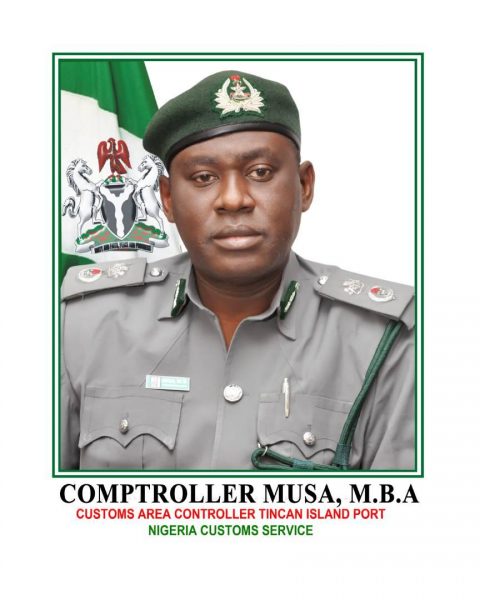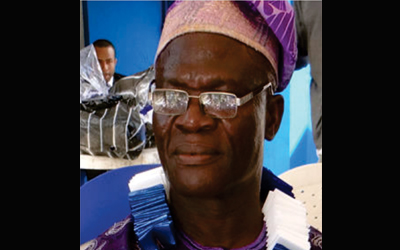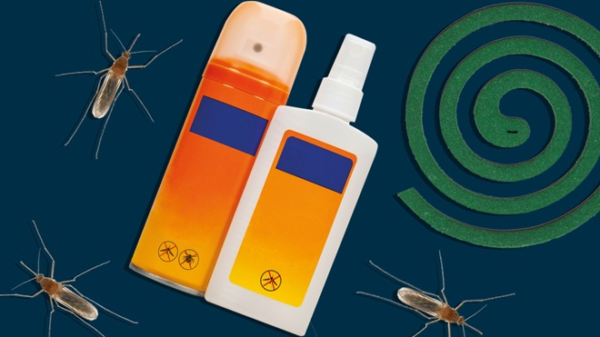Why We Block Licenses At Tin Can Island Port – Customs
By Kenneth Jukpor
In recent times, freight agents have picked on the Tin Can Island Customs Command for numerous challenges ranging from numerous alerts to blockage of licenses. In this interview with MMS Plus, the Command’s Public Relations Officer (PRO) Mr. Uche Ejisieme addresses the issues. Excerpts:
Recently, freight forwarders have made several reports of blockage of licenses at the Tin Can Customs Command. What has engineered this?
Well, the law provides for Customs to block licenses particularly when we notice any infraction either in declarations, or in any other form. Once Customs sees from the system through profiling that a particular declarant has done something that is irregular or that is not consistent with the norms; sanctions will always be applied and part of the sanctions is to block licenses. After blocking, we profile to see whether there are areas that the agent had been shortchanging government that we need to draw his or her attention to. If it’s a case of incorrect duty, then you pay. So, we can’t just block someone’s license without an issue.
Shouldn’t there be prior notice before these licenses are blocked?
Yes, you are right! Most times, we write to the agents before blocking their licenses but you find many letters sent that can’t be delivered because the addresses of the companies are non-existent. Since these addresses are non-existent, the agent wouldn’t get the letter, and consequently, he or she wouldn’t be aware of the plan to block the license until it is actually blocked.
There are some letters we generated in the past and sent to several places before we discovered that the addresses are not real. We send such letters to all over the country and these letters are returned back to us because of wrong addresses. So, it is actually difficult to get the agents in their office by notifying because you go to their offices and find that thesw are fictitious offices. What do we do?
The underlined factor and reason is simple. Once there are infractions that can be traced to a particular agent, maybe that license has been used to execute a job and we discover criminalities or abnormalities, what we do is to block it. This helps to ensure that such license is not used to further defraud the government. That is the essence of blocking it. By the time a license is blocked, we expect that you come forward for resolution. We are not blocking licenses because we want to punish anybody. There must be a reason, as they say, “there is no smoke without fire”
At Tin Can Customs Command, freight agents have posited that it has become a bothersome issue for importers to transfer their consignments from Tin Can to other terminals. How true is this?
This is another good question. Don’t forget that the law provides that importers and agents are at liberty to choose where they want their consignments to go. The most important thing is that you pay your duty. If you want to route your cargoes to any other terminal, you apply for the document known as transire and the Customs Area Controller (CAC) would approve.
Customs isn’t in a position to stop anybody from transferring his or her cargo to another terminal. If we do that it will be an aberration on our part. They have the right to transfer containers and the law provides that importers and agents are at liberty to do so.
Sometimes you see that some of the reasons for the transfer of the consignment are genuine, contrary to the popular opinion that it may be fraudulent strategies to cut corners. Proximity is usually a key issue in this decision. If an importer has a terminal close to his or her warehouse, why should he do transactions here when it would be more convenient somewhere else? We need to understand that there are so many terminals out there and these guys simply want to patronize the facilities very close to their warehouses. It is only logical that they will prefer to go to somewhere that is very close to them.
I learnt that the Comptroller-General of Customs (CGC) Col. Hammed Ali (Rtd) was at Ikorodu today, with the issue of overtime cargoes the topic for discourse.
Yes, I also read it on social media few hours ago. You should note that the Comptroller General has a military background. Hence, he has displayed high degree of military intelligence since he came onboard as the head of Customs. I think such actions deserve kudos because it shows the kind of Customs management and leadership we have today.
In the past, if the Comptroller-General of Customs pays a surprise working visit to Lagos, all the Commands would be jittery. Now, there is a paradigm shift. I can assure you that most people don’t know except the very senior officers who are supposed to know and that’s how it is supposed to be. Col. Ali has brought about discipline to the system.
On the aspect of overtime cargoes, I don’t know the figure at the moment but yesterday, in line with the circular sent to all Area Controllers, the Area Controller at Tin Can Island Customs, Comptroller Musa Abdullahi directed that we generate all uncleared cargo lists (UCL). Once it is generated we would be able to reconfirm the figures and send feedback to the headquarters.
I actually don’t know the specific number at the moment but the Technical Supervisor is actually on it, based on the directive from the CAC.
What are circumstances that lead to this high volume of uncleared cargoes at the ports?
We can’t give a specific reason for this. The law says that once a consignment comes in and within a given period of thirty days it hasn’t been cleared, it has become overtime cargo. The duration has further been reviewed to ninety days.
So many reasons may be responsible. What if someone planned to get monies from a source in order to clear goods, but the goods arrive and the money isn’t forthcoming? In the process of trying to raise the money to clear the goods, the time may elapse. Natural and unnatural problems could lead to this.
However, you cannot count Customs as part of the problems because as soon as you bring your consignment, have proper documentation and pay your duties, you’re done with Customs.
The Standards Organization of Nigeria (SON) has cried out that Customs have neglected them in cargo examinations that require their presence. Is that the case at Tin Can?
SON is linked to our single window. As soon as we see anything that requires their presence we escalate it electronically. Today, one of the Deputy Controllers at Port and Cargo Terminal called me about a cargo that requires the input of National Environmental Standards and Regulations Agency (NESREA). We can’t do our job and also do that of other agencies. We have imbibed the spirit of collaboration and synergy. Once we see a declaration that requires National Agency for Food and Drug Administration and Control (NAFDAC) or SON, we send notifications electronically. If anyone says Customs releases consignments without recourse to these agencies, I don’t think the person knows what he is talking about.
The first half of 2019 has almost ended. Can you brief us on the activities at the Command so far in 2019?
There is a saying that it isn’t enough for someone to be successful, what matters most is the ability to sustain that success. This is what the Area Controller is trying to do at Tin Can. Recall that in 2018, we did well and our performance resulted to the award from the World Customs Organization (WCO).
In January 2019, we had strategic meetings with key stakeholders at the port to finetune our operations to enable us not only maintain our high standards but also surpass them. Our emphasis isn’t only on revenue collection and seizures but we are also concerned about creating an enabling environment for businesses to thrive. We want to make sure that people who are coming to invest in Nigeria don’t find a harsh business environment. This is our focus and that’s why we continue to call on stakeholders to make compliance their watchword. Once you comply and anyone tries to extort you, you can bring the matter to this helpdesk which is directly under the CAC and you can be sure that you would get justice as quickly as possible.
However, we beckon on Nigerians to understand the critical role that customs is playing at this crucial part of the nation’s existence. We need all the support we can get in terms of compliance to the fiscal policies of the nation.
What have been the major challenges at Tin Can Customs Command?
Some of the facilities around the ports can be improved. We know that the federal government has awarded the contract for the road reconstruction and I’m sure that with the kind of listening government that we have, the problem would be addressed so that trade facilitation is real.
You can’t talk about trade facilitation without the requisite infrastructure. Infrastructure is very critical. At Tin Can, aside the road challenge we have been working assiduously to meet up with our obligations.








